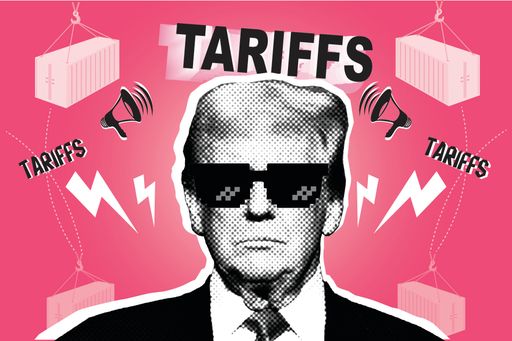The US Supreme Court's landmark ruling blunting a potent weapon that federal judges have used to block government policies nationwide during legal challenges was in many ways a victory for President Donald Trump, except perhaps on the very policy he is seeking to enforce.
An executive order that the Republican president signed on his first day back in office in January would restrict birthright citizenship – a far-reaching plan that three federal judges, questioning its constitutionality, quickly halted nationwide through so-called "universal" injunctions.
But the Supreme Court's ruling on Friday, while announcing a dramatic shift in how judges have operated for years, deploying such relief, left enough room for the challengers to Trump's directive to try to prevent it from taking effect while litigation over its legality plays out.
"I do not expect the president's executive order on birthright citizenship will ever go into effect," said Samuel Bray, a Notre Dame Law School professor and a prominent critic of universal injunctions whose work the court's majority cited extensively in Friday's ruling.
Trump's executive order directs federal agencies to refuse to recognise the citizenship of children born in the United States who do not have at least one parent who is an American citizen or a lawful permanent resident, also called a "green card" holder.
The three judges found that the order likely violates the citizenship language in the US Constitution's 14th Amendment.
The directive remains blocked while lower courts reconsider the scope of their injunctions, and the Supreme Court said it cannot take effect for 30 days, a window that gives the challengers time to seek further protection from those courts.
The court's six conservative justices delivered the majority ruling, granting Trump's request to narrow the injunctions issued by the judges in Maryland, Washington and Massachusetts.
Its three liberal members dissented.
The ruling by Justice Amy Coney Barrett, whom Trump appointed to the court in 2020, emphasised the need to hem in the power of judges, warning against an "imperial" judiciary. Judges can provide "complete relief" only to the plaintiffs before them, Barrett wrote.

A host of policies
That outcome was a major victory for Trump and his allies, who have repeatedly denounced judges who have impeded his agenda.
It could make it easier for the administration to implement its policies, including accelerating deportations of migrants, curtailing diversity and inclusion efforts, and downsizing the federal government, many of which have tested the limits of executive power.
In the birthright citizenship dispute, the ruling left open the potential for individual plaintiffs to seek relief beyond themselves through class action lawsuits targeting a policy that would upend the long-held understanding that the Constitution confers citizenship on virtually anyone born on US soil.
Bray said he expects a surge of new class action cases, resulting in "class-protective" injunctions.
"Given that the birthright-citizenship executive order is unconstitutional, I expect courts will grant those preliminary injunctions, and they will be affirmed on appeal," Bray said.
States challenge directive
Legal experts said they expect a lot of legal manoeuvring in lower courts in the weeks ahead, and the challengers still face an uphill battle.
Compared to injunctions in individual cases, class actions are often harder to successfully mount. States, too, still do not know whether they have the requisite legal entitlement to sue. Trump's administration said they do not, but the court left that debate unresolved.
Meanwhile, the 30-day clock is ticking. If the challengers are unsuccessful going forward, Trump's order could apply in some parts of the country but not others.
"The ruling is set to go into effect 30 days from now and leaves families in states across the country in deep uncertainty about whether their children will be born as US citizens," said Elora Mukherjee, director of Columbia Law School's immigrants' rights clinic.
















